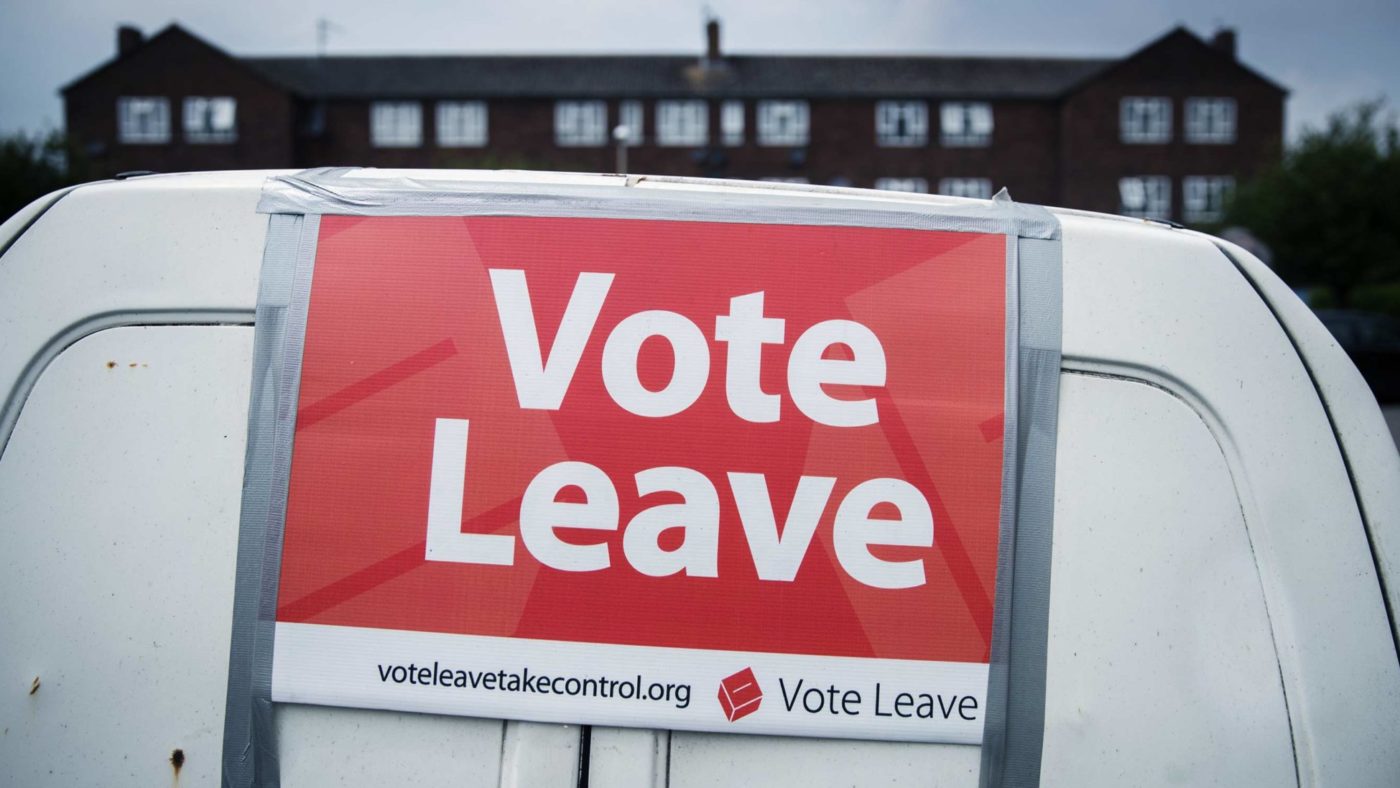Ever since the EU referendum two years ago, the debate about why we voted to Leave has raged on. Predictably, the result has been interpreted in many different ways and often spun to suit particular narratives.
However, the debate has been fairly light on data, partly because with no equivalent of the British Election Study’s (BES) random probability survey for the referendum, we were limited to conventional polling until the 2017 BES was published this year.
Even with good data, understanding why people voted Remain or Leave, or for a particular party, or habitually abstain, is still difficult for two reasons. Firstly, the seemingly obvious approach of simply asking people why they voted the way they did often produces misleading answers.
Here’s a non-political example of why, with credit to Anthony Wells. Retail analysts find that shoppers are more likely to buy things on the middle shelf. But if you were to ask people why they bought a particular product instead of an alternative, almost no-one would give that reason.
Psephologists therefore try to infer behavioural drivers from statistical patterns. That too is difficult because there are usually a number of moving parts, many of them interacting with
one another. For example, it’s well known that younger people and university graduates are both likelier that the general population to have voted Remain. But clearly, younger people are more likely to be graduates (or alternatively, graduates are more likely to be young).
If you control for one of these effects, the other becomes smaller. One way to deal with this is to use regression modelling techniques, with multiple variables. A simple model, using only demographics (age, gender, education, income and ethnicity), immediately tells us something important. Being on a low (approximately bottom third) household income isn’t a statistically significant predictor of voting Leave compared with being on an average income, once the other factors – notably age and education – are accounted for.
Being on a higher (top third) income is, however, a predictor of voting Remain, with voters in that category being eight percentage points less likely to have backed Brexit, keeping the other variables constant. Other factors associated with voting Remain in this model include gender (women were five points less likely to vote Leave than men), being a graduate (five points compared with non-graduates) and being from an ethnic minority (18 points lower than white voters).
The question is, do these things matter on their own, or because they predict attitudes which in turn predict someone’s propensity to vote a certain way? Thankfully, the BES includes a number of questions on political and social attitudes. If we include these in our model, something very interesting happens: the attitudinal variables do all the heavy lifting when it comes to predicting someone’s likelihood of voting Remain or Leave.
Those who think efforts to ensure equality for ethnic minorities have gone too far are eight points likelier than those who don’t to have voted Leave, and those who think the same in relation to gender equality are seven points likelier to be Leavers. But being opposed to the death penalty makes you 15 points more likely to be a Remainer. Though these questions aren’t directly relevant to Brexit, they are useful proxies for a more socially conservative or in some cases authoritarian outlook.
The strongest Brexit predictor of all is whether or not someone thinks that immigration has been too high. Those who do are fully 42 percentage points likelier than those who don’t to have voted Leave. The interesting part is that once we take account of these attitudes, the demographic variables become far less important. The gender effect is similar (six points) but the ethnicity effect is smaller, with BME voters being only 11 points less likely to vote Leave than white people who are similar to them in other respects.
However education and age – two of the most important demographic variables – are no longer statistically significant once we account for social attitudes. In other words, the data suggests that someone’s age and education are only really relevant to the extent that they tell us something about that person’s broader worldview, which in turn helps explain their preference with regard to Britain’s place in or out of the EU.
Of course, that’s not to pigeonhole either Leavers or Remainers. For example, on the key issue of immigration, the difference in probability of voting Leave was 42 percentage points, not 100.
It’s therefore arithmetically certain that not all Leavers are anti-immigration and not all Remainers are pro-immigration – what we are actually doing is identifying the factors that correspond to higher or lower probabilities of holding each position on Brexit.
That said, we have further evidence that Brexit was about culture, not (at least, not primarily) about economic concerns. The economic measure here is income – specifically low versus middle incomes – but using someone’s subjective view of their personal financial situation yields similar results. Economic anxieties, of which much has been made, appear less of a factor than someone’s
attitude to diversity, authority and especially immigration. That in turn may indicate that, for example, the more important consequence of deindustrialisation (as far as Brexit is concerned) is its social effect, rather than its economic impact, on post-industrial communities.
It may also tell us something about the future. There remains a belief in some quarters that it is possible for politicians to “choose the future”, and that generational change will inevitably deliver a socially liberal majority.
Yet the key survey questions here have for decades produced substantial opposition to high levels of migration and social change, which suggests there are and will continue to be both social liberals and social conservatives. Acknowledging this will be crucial to understanding the cultural divides in British society.


